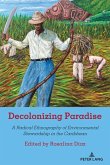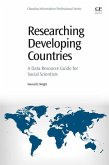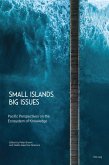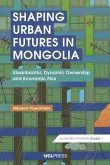Packaged Plants offers an absorbing ethnography and cultural history of how the production and consumption of plants for food and medicine has gone through 'metabolic rifts', increasingly processed into commodities with adverse impact on health and aggravating existing economic and social inequities. The book also describes ultra-processed foods that are linked to metabolic syndrome, including cardiovascular disease, diabetes and obesity.
Divided into two parts, the first part presents a comprehensive historical analysis of the socio-metabolic shifts leading to the loss of plant sovereignty in the Philippines. It scrutinizes colonial influences, urbanization, nutritional policies, scientific research programs and neoliberal marketing strategies that have paved the way for the proliferation of packaged plant-based products passed as food or medicines. The second part delves into contemporary socio-metabolic dynamics within Puerto Princesa, interweaving urban political ecology frameworks with medical anthropological perspectives. It elucidates the precarious circumstances of daily life in a boomtown, compelling individuals to invest in supplements and engage in resource-intensive multi-level marketing endeavours.
Furthermore, the book sheds light on efforts to reclaim plant sovereignty, including a resurgence of backyard farming in response to food insecurity exacerbated by the COVID-19 pandemic. Through meticulous research and insightful analysis, Packaged Plants offers a compelling exploration of the intersectionality between health, economics, and environment in the Filipino context.
Divided into two parts, the first part presents a comprehensive historical analysis of the socio-metabolic shifts leading to the loss of plant sovereignty in the Philippines. It scrutinizes colonial influences, urbanization, nutritional policies, scientific research programs and neoliberal marketing strategies that have paved the way for the proliferation of packaged plant-based products passed as food or medicines. The second part delves into contemporary socio-metabolic dynamics within Puerto Princesa, interweaving urban political ecology frameworks with medical anthropological perspectives. It elucidates the precarious circumstances of daily life in a boomtown, compelling individuals to invest in supplements and engage in resource-intensive multi-level marketing endeavours.
Furthermore, the book sheds light on efforts to reclaim plant sovereignty, including a resurgence of backyard farming in response to food insecurity exacerbated by the COVID-19 pandemic. Through meticulous research and insightful analysis, Packaged Plants offers a compelling exploration of the intersectionality between health, economics, and environment in the Filipino context.
Dieser Download kann aus rechtlichen Gründen nur mit Rechnungsadresse in A, D ausgeliefert werden.









